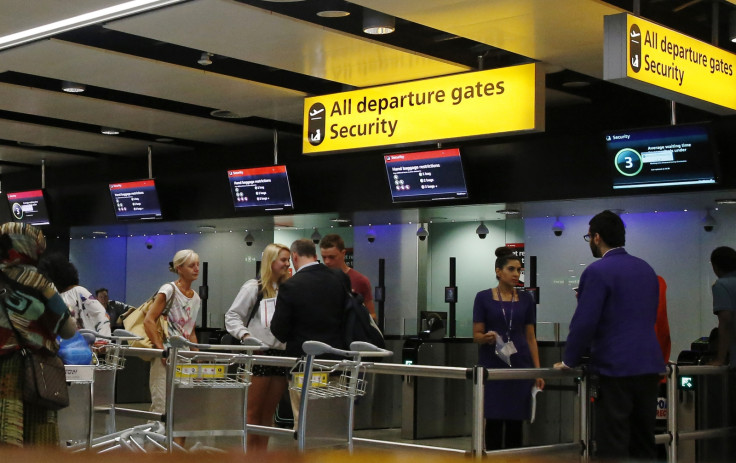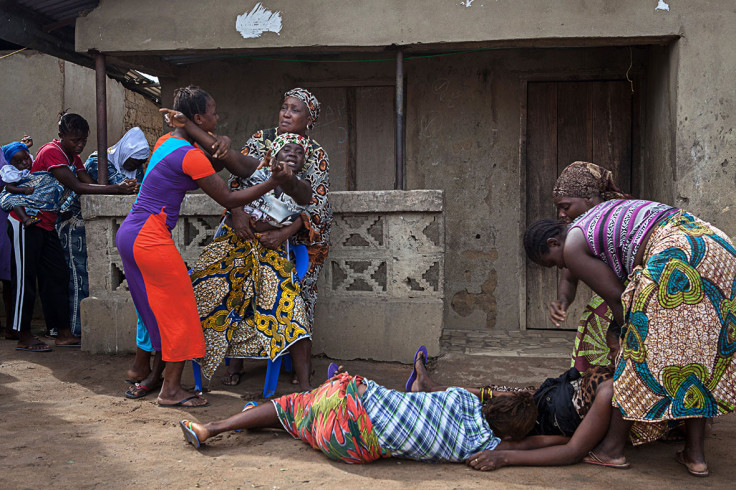Ebola Outbreak: Will Airport Screening Work?

Heathrow airport is to start screening for the Ebola virus among passengers flying into the UK from countries at risk. The process will begin at Terminal 1, before being extended to other terminals, Gatwick airport and Eurostar by the end of the week.
The human toll from the Ebola outbreak has been unprecedented, with over 4,000 deaths since March. The majority of fatal cases have been in Liberia, Sierra Leone, Guinea and Nigeria. But as the UK tightens its security over the epidemic, will screening actually do anything to prevent the virus from spreading?
Screening process
Screening can involve taking an individual's temperature to check whether they have a fever. This is a symptom of Ebola, but it is also common in many other infections. Some health experts argue that by screening on departure, anyone who is likely to be infected will be identified.
Questions will also be asked to confirm which countries the person has travelled through, if they have been near someone unwell and if they work in healthcare, or have cared for someone with Ebola. Individuals will be asked if they have a fever or headache or have been vomiting.
The government has said some people will face assessment by medical staff, but the details of this remain unclear.
Incubation period
Professor David Heymann, who was part of the international team who first investigated the first outbreak of the virus in the 1970s, is an expert on infectious diseases at the London School of Hygiene and Tropical Medicine.
Speaking to IBTimes UK, Heymann said that the screening process was flawed because of the incubation period of the virus. The incubation period, the time interval from infection with the virus to the onset of symptoms, is between two and 21 days.
"You can't find Ebola by screening, because people could be in an incubation period for days," he said, making reference to the recent case of Thomas Eric Duncan in Texas. Duncan, the first man to be diagnosed with the virus in the US, died last week after travelling from Liberia.
Duncan began having symptoms of infection four days after he arrived at Dallas-Fort Worth Airport, having travelled from Monrovia, via Brussels and Dulles Airport in Virginia.
"We know that Ebola can spread throughout the world in people who are still healthy in their incubation period," he said, adding that it was important to remember the virus is not airborne.
The virus is spread through direct contact with infected blood, organs and other bodily fluids, as well as infected materials.

Ineffective testing
Duncan's case revealed that he may have lied about his exposure to Ebola on a questionnaire at Monrovia airport in Liberia. On the form the patient filled in, obtained by the Associated Press, it was revealed he had filled in "no" to all of the questions, including whether he had been in contact with anyone who might have had Ebola in the past 21 days.
He is reported to have helped carry a pregnant woman suffering from Ebola into a taxi, however it is unclear whether he knew about her diagnosis at the time.
The revelation led to a call for more to be done to identify the virus, as patients could avoid detection by taking over-the-counter medication, such as Ibuprofen, and lying.
Sean Kaufman, president of the Atlanta-based biosafety company Behavioural-Based Improvement Solutions, told Reuters that fever-screening instruments were inaccurate.
"And people can take Ibuprofen to reduce their fever enough to pass screening," he added. "And why wouldn't they? If it will get them on a plane so they can come to the United States and get effective treatment after they're exposed to Ebola, wouldn't you do that to save your life?"
Blood tests to identify the virus exist, but they require analysis in a laboratory – which can take hours to get a result. Airports do not have this capacity.
"Political" not "scientific" measure
Health Secretary Jeremy Hunt said it was "likely" that Ebola will be seen in the UK, and a "handful" of cases could be confirmed in the next three months. However, health experts have questioned whether the enhanced screening would prevent the disease.
Dr Ron Behrens, of the London School of Hygiene and Tropical Medicine, said the benefit of screening would be "very small", adding that the decision appeared to be a political one – with little scientific basis.
Health experts argue that the fear of Ebola itself is becoming a primary problem in Britain and the US, despite the victims of the disease being almost exclusively in West Africa. The rising death toll in Liberia, Sierra Leone and Guinea is partly fuelled by the lack of an adequate healthcare infrastructure, incomparable to health systems in the West.
Meanwhile, in Nigeria, where care is more organised, Ebola has largely been contained. In the UK, however, anxiety has risen to the point where a Sierra Leonean boy was banned from attending a Stockport school, despite him being free from infection.
© Copyright IBTimes 2025. All rights reserved.






















